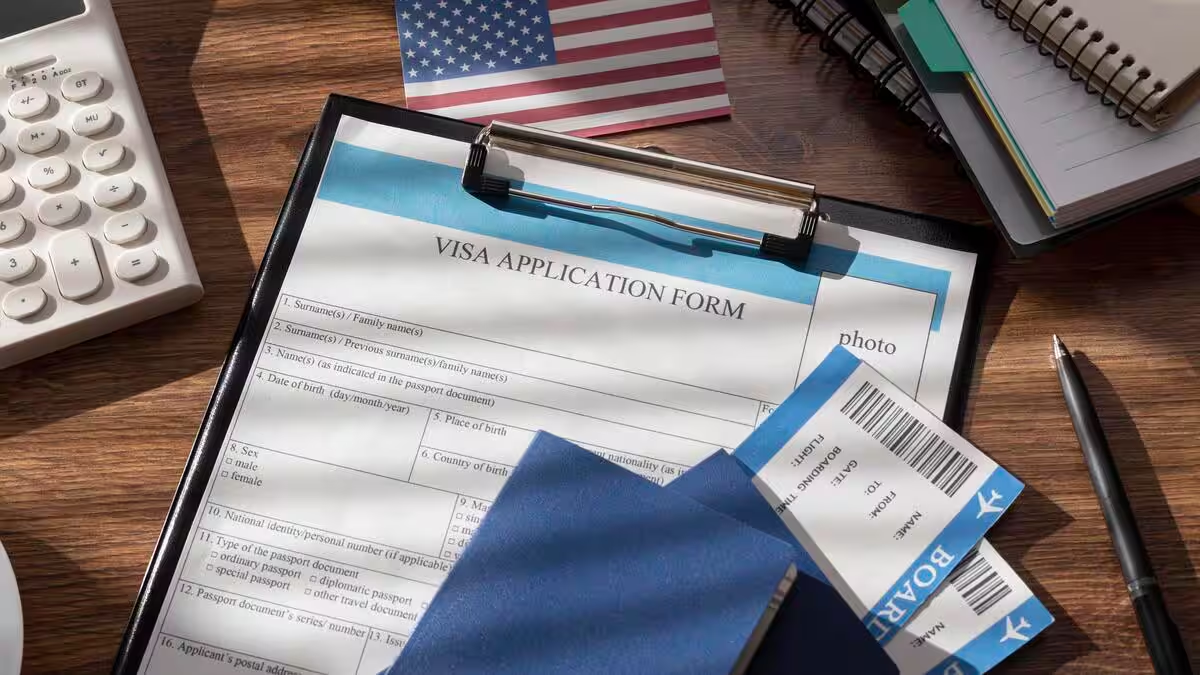Managing all the documents and paperwork for studying abroad is just too much. To make life simpler, here’s a useful checklist to keep you on track.

It can be difficult to recall all the documents required for university applications overseas if you are applying to several institutions. This guide provides you with all the necessary forms and papers you will require, as well as useful links, to ease your study overseas adventure.
What documents do I require to study overseas?
Acceptance letter – Either a university or centralized admissions system.
High school transcripts – Your GPA and extracurricular activities.
Final high school exam results – Depending on what exams your university accepts.
Passport – Required for travel and as identification. Ensure it’s not due to expire well past your application date.
Student visa – Apply on the respective government website.
Tuition and funding evidence – Proof that you have sufficient savings or scholarship letters.
Accommodation contract
English language test results – Could be IELTS, TOEFL, PTE, or Duolingo, depending on what your university requires.
Travel and contents insurance
Health insurance or registration forms for the universal healthcare system in the country.
What do I need to study in the UK?
UCAS letter – Your university acceptance confirmation.
Exam results – A-levels, BTEC, Scottish Highers, or equivalent in your home country.
Tier 4 student visa – Applied for on the UK government website (£348 fee).
Accommodation contracts – Majority of first-year students live in university accommodation (organized by admissions), with private accommodation for second- and third-years.
Tuition fees and funding documents – International students do not receive any government funding, but scholarships are offered.
English language test results – IELTS, TOEFL, PTE, or Duolingo, depending on your university.
Healthcare – Full-time international students who study for six months or more are entitled to use the NHS. You’ll have to pay the Immigration Health Surcharge (IHS) of £470/year as part of your visa application. If you’re in the UK, register with a local GP to use services.
To find out more about studying in the UK, visit our website.
What documents do I need to study in the US?
Acceptance letter – From your university or the Common App (if you’ve applied using it).
Exam results – Usually SAT or ACT, but varies by university.
Student visa – You’ll require an F1 (academic studies), M1 (vocational studies), or J visa (exchange programs). The application fee is $160, plus additional charges that may be required. You’ll also have to cover the $350 SEVIS fee.
Tuition and funding documents – Visa applications require proof of funds (I-20 form). Scholarships and financial aid are also options.
English language test results – IELTS, TOEFL, PTE, or Duolingo, depending on your university.
Accommodation contracts – Choose between university dorms or private student housing.
Healthcare – The US has no universal healthcare, so private medical insurance is required (plans start around $1,000/year). Many universities offer group plans—check what’s covered.
Learn more about studying in the US [here].
How expensive is it to study in.?
The UK?
The United States?
Canada?
Australia as an international student?
What do you need to study in Canada?
Acceptance letter – Ontario uses OUAC (one-time payment), British Columbia uses EducationPlannerBC, and the other provinces direct applications.
High school exam results – At least a 70% in 12th-grade math (or comparable) for bachelor’s programs; bachelor’s degree for master’s.
Language test scores – IELTS, TOEFL, or Cambridge English for French, exams such as TEF, TCF, DALF, or DELF may be required.
Study permit/student visa – Fees CAD$150, and potential biometrics (CAD$85), medical examinations, police certificates, or language testing.
Tuition and financial documents – Varying fees at universities; scholarship and bursary assistance available.
Housing contracts – Campus or off-campus housing.
Healthcare – No compulsory universal healthcare for international students; private coverage ranges from CAD$600–$900 based on coverage.
Which documents do you require to study in Australia?
University letter of acceptance
Results of exams – Equivalent to Australia’s Year 12 or International Baccalaureate.
Results of English language test – IELTS, TOEFL, PTE, or Duolingo (university-specific).
Subclass 500 Student visa – Charges AUD$1,080 (over 18) or AUD$770 (under 18).
Tuition and sponsorship documents – Proof of funds for tuition for 12 months + AUD$21,041 living expenses + AUD$3,000 travel. Alternatively, provide parental/partner income of at least AUD$62,222/year. Scholarships can also be considered.
Accommodation agreement – On-campus or off-campus accommodation.
Healthcare – Overseas Student Health Cover (OSHC) must be purchased to receive Medicare. Prices average AUD$438/year (single), AUD$2,685 (couples), or AUD$4,026 (family). Dental, optical, and physio typically require additional coverage.

